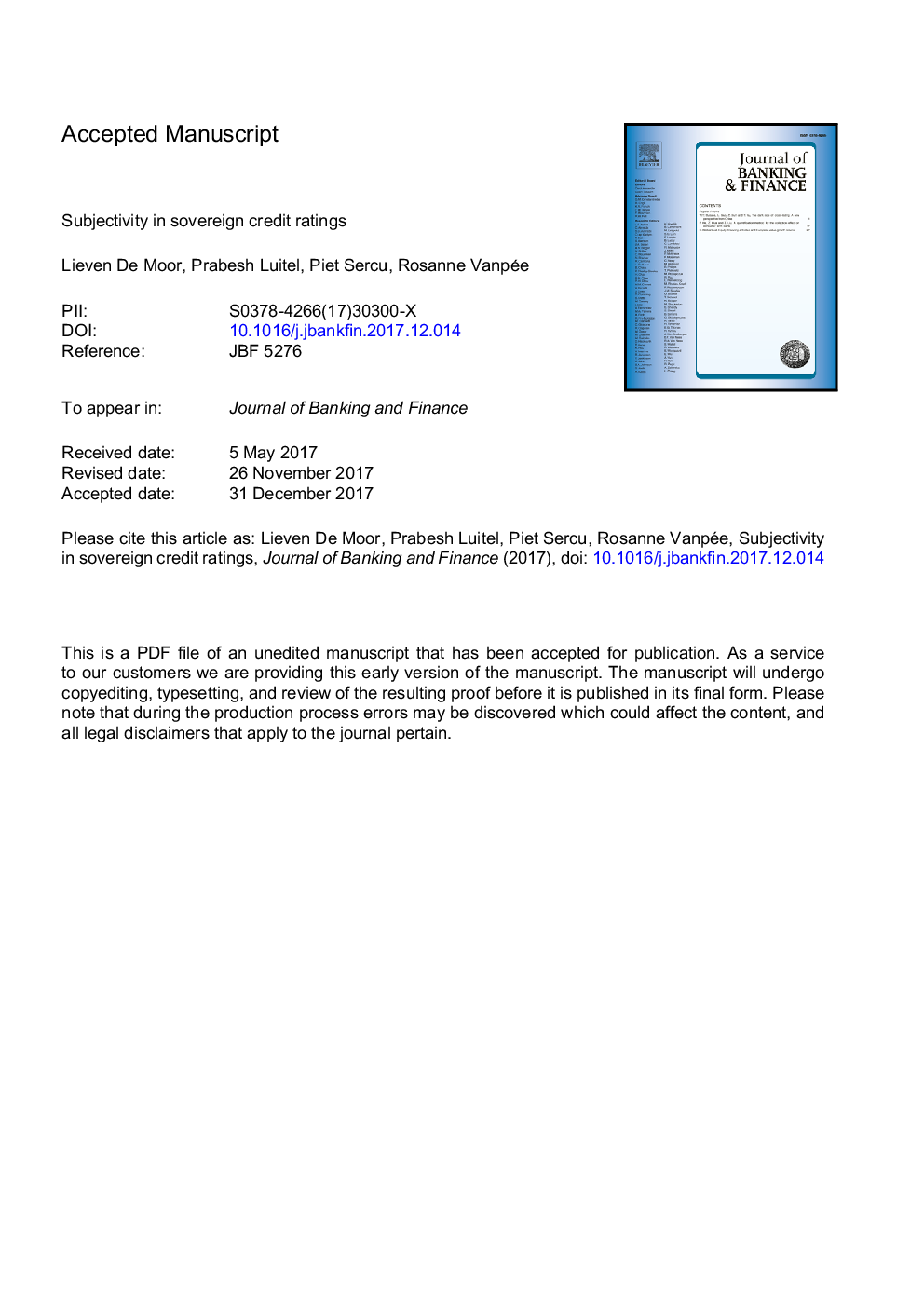| Article ID | Journal | Published Year | Pages | File Type |
|---|---|---|---|---|
| 7356679 | Journal of Banking & Finance | 2018 | 50 Pages |
Abstract
A sovereign creditrating is a function of hard and soft information that should reflect the creditworthiness and the probability of default of a country. We propose an alternative characterisation for the subjective component of a sovereign credit rating - the parts related to the ratee's lobbying effort or its familiarity from a United States point of view - and apply it to S&P, Moody's and Fitch ratings, using both traditional ordered-logit panel models and machine learning techniques. This subjective component turns out to be large, especially for the low-rated countries. Countries that are rated as investment grade tend to be positively influenced by it, and vice versa. Subjective judgment in credit ratings does have predictive value: it helps in identifying chances of sovereign defaults in the short-term. Still, the impact of subjectivity in sovereign ratings on borrowing costs is very limited on average.
Related Topics
Social Sciences and Humanities
Economics, Econometrics and Finance
Economics and Econometrics
Authors
Lieven De Moor, Prabesh Luitel, Piet Sercu, Rosanne Vanpée,
